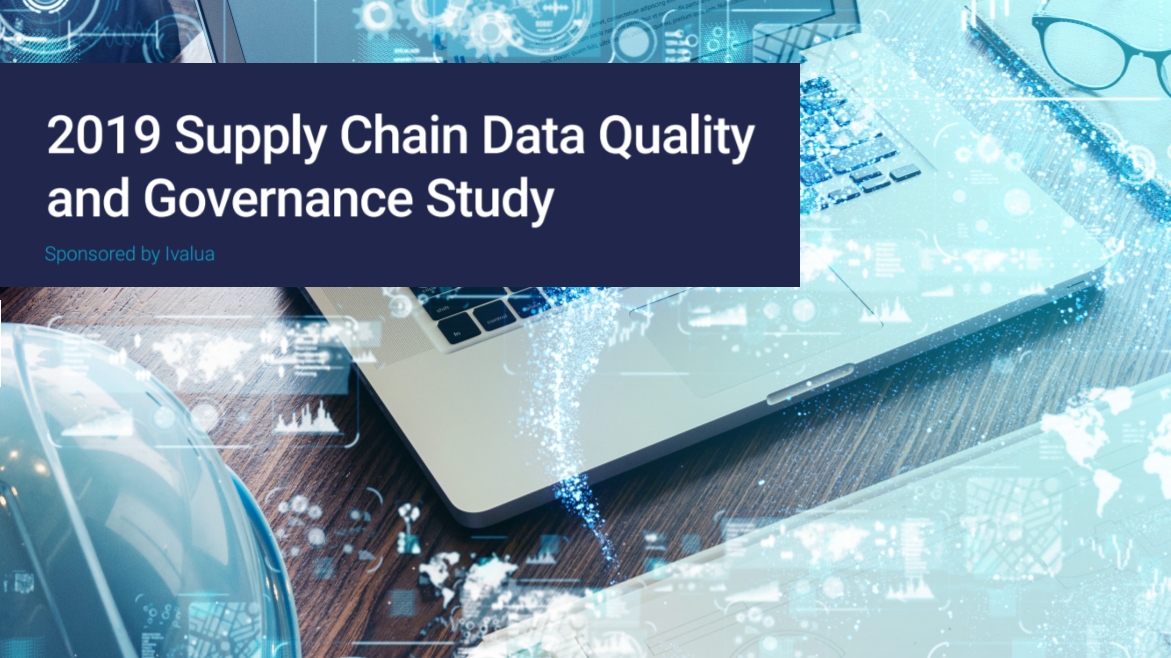Third Annual State of Supply Chain Data Quality and Governance Report Released

This morning, the SCRC and Ivalua released the latest report on the state of data governance in supply chains, which provides insights into some of the key trends in this rapidly shifting area.
This year’s study was conducted with the support of several global and national professional supply chain and contracting associations. This included the Chartered Institute of Procurement & Supply (CIPS), the Institute for Supply Management (ISM), the International Association for Contract & Commercial Management (IACCM), and Supply Chain Canada (SCMA). As a result of this support, we were able to obtain 876 responses to our survey making this one of the most comprehensive studies addressing data quality and governance in the supply chain. We believe this to be the largest continuous study on this subject. The results of the 2019 3rd Annual “Supply Chain Data Quality and Governance Study” by the Supply Chain Resource Cooperative (SCRC) at North Carolina State University, with the support of Ivalua, provides some important insights for organizations seeking to pursue digital transformation in their supply chain network.

The scope of our study for 2019 reflects the market and technological shifts in the nature of challenges facing adopters of AI, Machine-based Learning, and blockchain, who are discovering that the fundamental nature of data quality is the foundation to enable successful analytics investments. We consulted with a number of executives in interpreting the results of our study, and have drawn some important conclusions for supply chain leaders who seek to improve the state of data governance as the foundation for data as the basis for effective supply chain analytics.
There were a number of key insights from the report that are summarized here:
- Data quality and governance in supply chain are improving gradually and the rate of improvement shows modest acceleration.
- While data quality appears to be improving, the organization and categorization of data still remain a challenge as evidenced by the increase in time spent trying to find data.
- The supply chain management function has increased its participation on company data governance steering committees. This participation will allow the data quality and governance needs of the supply chain to begin to be addressed at the corporate level.
- It appears that supply chain analysts are starting to decrease their dependence on Excel as the primary tool for data cleaning, organizing and analysis.
- The concept of viewing data as an asset is beginning to be established as more procurement functions start to play a more prominent role in creating the components of a Data Asset Management (DAM) strategy.
The report also provides insights and interviews with supply chain leaders that help identify some of the key strategies that can be used to create digital insights from data. The challenges associated with poor data are proclaimed everywhere in the popular press, and organizations continue to bemoan the challenges associated with mining “big data” using AI, machine learning, and analytical tools. However, few of these reports provide tangible pathways for dealing with the issue of poor data quality. This report provides some important insights into how organizations can establish a data governance strategy, along with policy guidelines and advice on how to render data into a truly competitive asset that spans multiple functions and addresses key business decisions. The report provides some of the guidelines that executives should consider in their digital transformation strategies.
The report also supports one of my 2020 predictions made last year that “Applications of artificial intelligence in supply chains will grow, but not as fast as the press would have you believe!” Data governance will continue to be a challenge for organizations who are not willing to make the investment in curating and managing data as an asset.
Thanks to all who supported the study, as well as to Joe Yacura and Balaji Soundararajan for their hard work on this report!